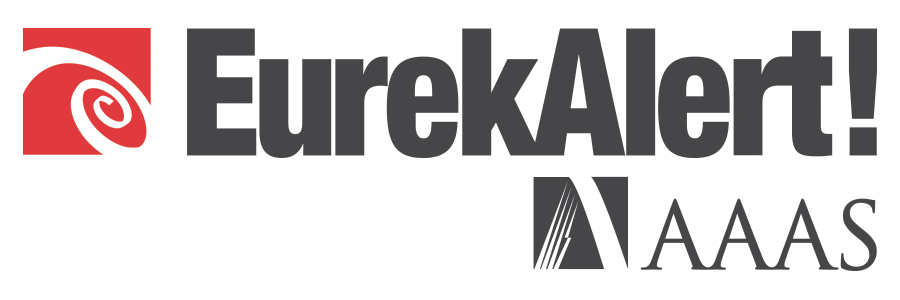
SEATTLE – Dr. Richard Horton, the “activist editor” of the international medical journal The Lancet, will be honored June 10 in London for his accomplishments as one of the world’s most “committed, articulate, and influential advocates for population health.”
He is receiving the 2019 Roux Prize, given annually to individuals on the front lines of global health innovation in data science. Past winners include health ministers of Rwanda and Mali.
“There is virtually no policy debate in global health or priority adopted by donor agencies or international health organizations that has not first been championed in the pages of The Lancet,” said Dave Roux, a Virginia-based entrepreneur and philanthropist. “Under his leadership, the journal has become the premier venue for global health science. Richard has shaped the evolution of priorities through his weekly editorials and commentaries and through the sponsorship of myriad commissions on the vital health issues of our day.”
Roux and his wife Barbara fund the annual Roux Prize, which is administered by the Institute for Health Metrics and Evaluation (IHME) at the University of Washington in Seattle.
“Richard has been an activist editor, relentlessly taking on issues beyond the traditional scope of ‘public health,’ including the accountability of the medical profession, as well as human rights,” said IHME Director Dr. Christopher Murray. “He has demonstrated an uncompromising commitment to advance health internationally, and his vison for a healthier, safer, and more just world has made Richard one of the world’s most sought-after population health speakers.”
One of those issues beyond “traditional public health” has been “planetary health,” a discipline Horton argues transcends incorporating public health and the environment, and examines “the unity of life and the forces that shape those lives,” according to an editorial published last year.
“Planetary health was intended as an inquiry into our total world. Our political systems and the headwinds those systems face,” he wrote. “The failure of technocratic liberalism, along with the populism, xenophobia, racism, and nationalism left in its wake. The intensification of market capitalism and the state’s desire to sweep away all obstacles to those markets.”
Horton also has been “an early and tireless advocate for putting maternal and child health at the top of the global health agenda,” according to Murray.
In a 2008 commentary, “Maternal and child undernutrition: an urgent opportunity,” Horton wrote, “There is no magic technological bullet to solve the problem of undernutrition. Long-term investments in the role of women as full and equal citizens – through education, economic, social, and political empowerment – will be the only way to deliver sustainable improvements in maternal and child nutrition and in the health of women and children more generally.”
Established in 1823, The Lancet today is one of the world’s most influential medical journals. Horton joined the journal’s staff in 1990 and five years later became editor-in-chief. He leads the flagship weekly Lancet publication and is editorial director for its 15 other medical journals, overseeing an integrated editorial mission for equity, the right to health, and social justice across the entire Lancet group.
“We recognize that a great research paper is not enough and that it requires development, mobilization, and exposure. So we promise to set agendas, create context, inform leaders, start debates, and advocate for the idea that research can and will make a difference,” according to the “manifesto” of the publication.
World Health Organization Director-General Dr. Tedros Adhanom Ghebreyesus remarked, “Richard’s advocacy for sustained improvements in global health has been inspiring to me and to many others at WHO. I respect him deeply as a colleague and friend, and applaud his selection as the winner of the Roux Prize.”
In addition to working alongside WHO leaders for decades, Horton has served on several United Nations commissions, including The UNAIDS and Lancet Commission: From AIDS to Sustainable Health. One of the co-chairs of that commission, Dr. Peter Piot, director of the London School of Hygiene & Tropical Medicine, said Horton has served as “a megaphone for global health in a mainstream medical journal.”
Horton’s use of data to promote health has been a hallmark of his career since he graduated from the University of Birmingham’s School of Medicine in 1986.
Horton also won numerous awards, including:
- The Edinburgh Medal for scientific and professional contributions to the understanding and well-being of humanity from Edinburgh City Council and the Scottish Executive;
- The Dean’s Medal from the Johns Hopkins Bloomberg School of Public Health;
- Election as a Foreign Associate of the US Institute of Medicine; and
- The Friendship Award from the government of China.
He also is a founding fellow of the Academy of Medical Sciences and a Fellow of the Royal College of Physicians. In addition to his position at The Lancet, Horton is an honorary professor at the London School of Hygiene and Tropical Medicine, University College London, and the University of Oslo. Horton also serves on the board of Physicians for Human Rights, the New York-based organization committed to securing justice and human rights for all. He has written commentaries for The Observer, The Guardian, and The New York Review of Books, among other publications.
“Richard personifies The Lancet‘s admonition that ‘improving lives is the only end goal and that research is only relevant when it has an impact on human lives,'” Roux said. “That admonition and his legacy will continue to drive population health research for generations to come.”
###
Media contacts:
IHME: Dean Owen, +1-206-897-2858 (office); +1-206-434-5630 (mobile); dean1227@uw.edu
The Lancet: Emily Head +44-207-424-4249 (office); +44-7920-530-997 (mobile); emily.head@lancet.com
Disclaimer: AAAS and EurekAlert! are not responsible for the accuracy of news releases posted to EurekAlert! by contributing institutions or for the use of any information through the EurekAlert system.

